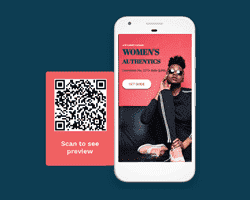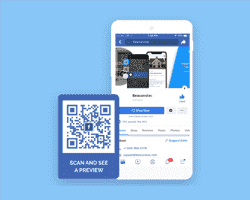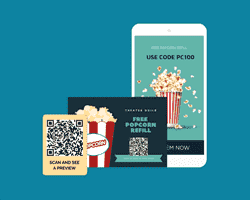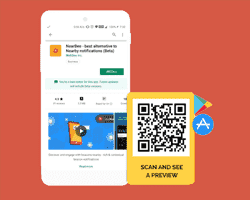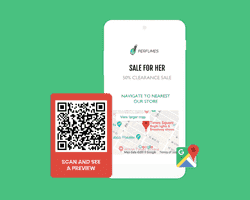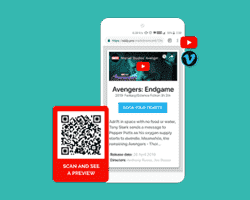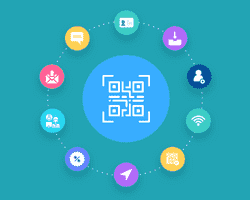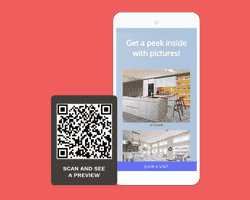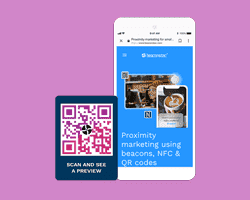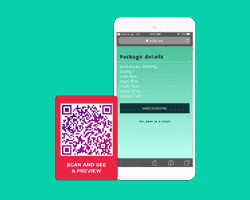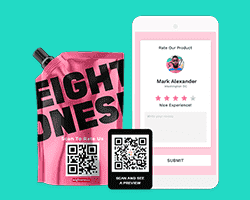QR Codes on labels and stickers for CPG brands
Reinforce consumer trust, increase long-term brand loyalty, and achieve higher conversions with the help of QR Codes on labels and stickers. An efficient QR Code label generator is all you need to assist consumers at every stage of the consumer buying journey.
*No credit card required.
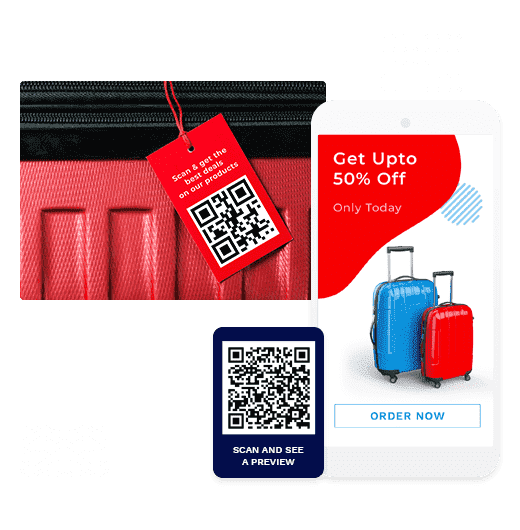
Discover the benefits of QR Codes on labels and stickers
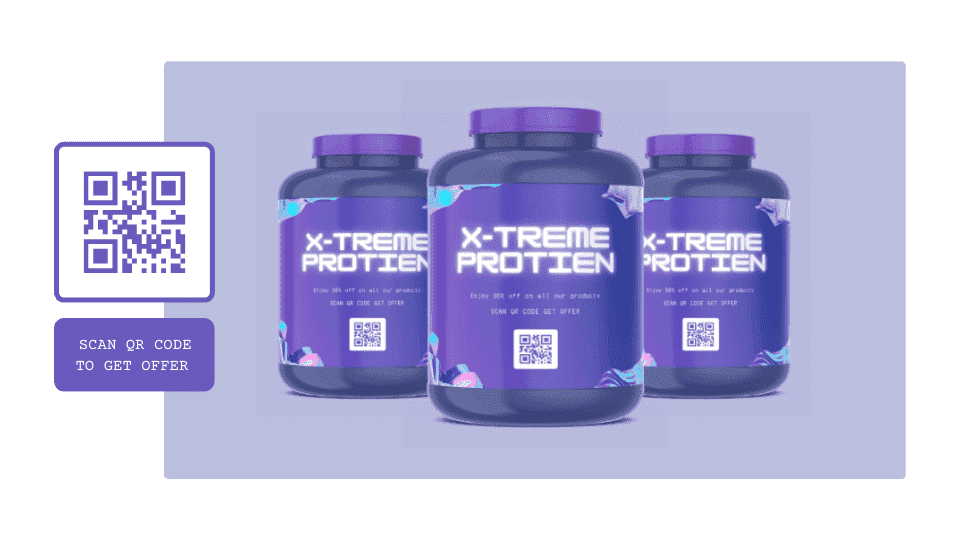
Businesses can utilize QR Code labels and QR Code stickers to increase pre-purchase and post-purchase engagement and verify a product's authenticity. Brands can even use them in stores for payments to decrease the wait time. In a nutshell, QR Codes on labels and stickers are a valuable medium for consumer interactions and engagement.
How QR Codes on labels and stickers improve the in-store customer experience
Businesses can leverage QR Code labels in several different ways inside the store. From posters and banners to product packaging, QR Codes on labels can help increase the level of pre-purchase engagement.
Make product packaging your sales assistant
Share product videos using QR Code labels and stickers
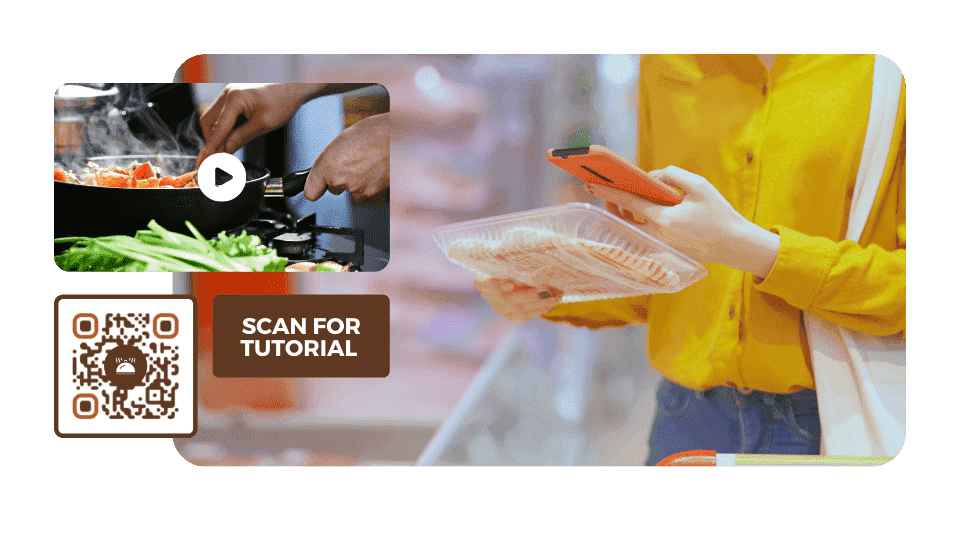
Brands and businesses use a QR Code label or QR Code sticker on the product’s primary or secondary packaging to drive shoppers to watch online advertisements or a How-To video to better understand how the product works. This helps consumers learn more about the product and its uses, which comes in handy for influencing purchase decisions.
Provide lookbooks to shoppers using QR Code tags
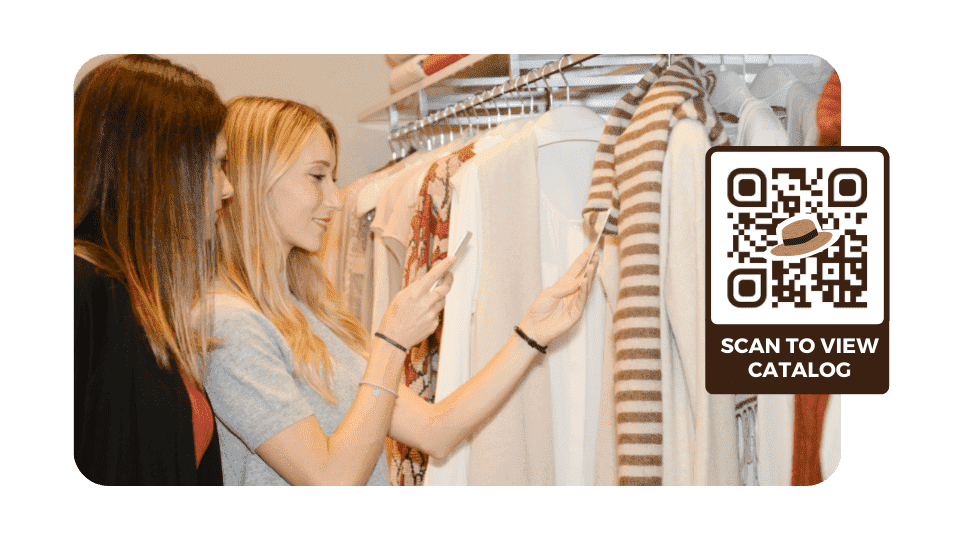
Brands also place a PDF QR Code tag on clothing to allow shoppers to see a lookbook and cross-sell auxiliary products. This can be accompanied by a CTA that says ‘Scan to see the lookbook’.
Collect more ratings and reviews with QR Code stickers
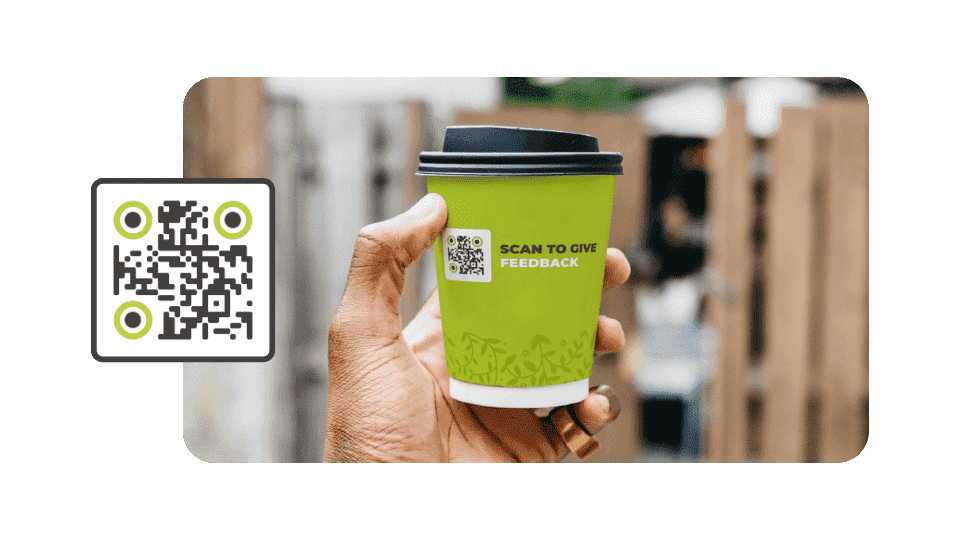
Businesses use a feedback QR Code sticker to run market surveys on new product lines or incorporate customer feedback to make them feel heard. This feedback and rating QR Code could lead to a form, Facebook, Yelp, or a social media channel where consumers can voice their opinions.
Adidas launched the FutureCraft Loop shoe, which is made from zero virgin plastic. The shoe has a QR Code that allows wearers to scan it and send feedback so that Adidas can make further improvements.
Discover Feedback Rating QR Codes
Share websites/landing pages using QR Codes on labels and stickers
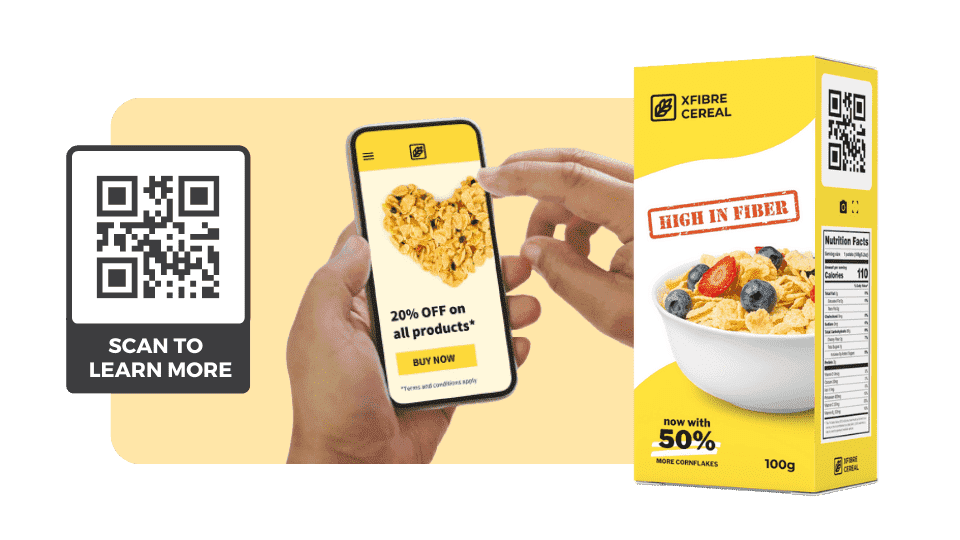
Brands often add a QR Code on labels and stickers to allow consumers to access more information about the product before buying.
Nestle and Carrefour partnered with IBM to enable customers to scan QR Codes on mashed potatoes that take them to a landing page with information about the potato such as the date of manufacturing, date of expiry, whether it’s organic and more.
Rapanui, a clothing brand, places QR Codes on their clothing so that consumers can scan it and find out more about its origin. This sort of information is relevant for the consumer and helps them make informed purchase decisions.
Social media promotions using QR Code labels
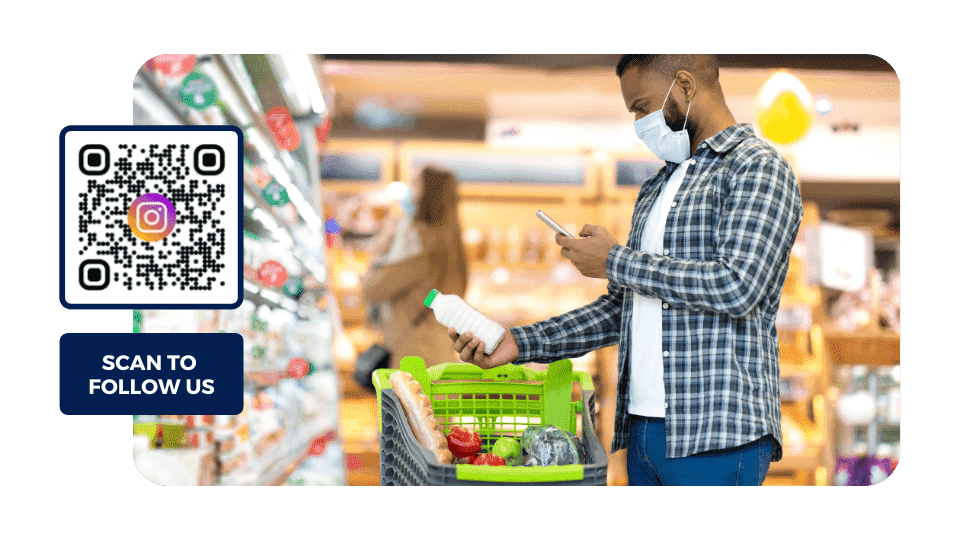
Businesses also add a social media QR Code label on their products to get consumers to follow them online or post a review. They can incentivize this with a promo code or a discount to nudge consumers to take action. This promotes user-generated content online and increases the brand’s social media visibility.
Elevate print media with the help of QR Code labels
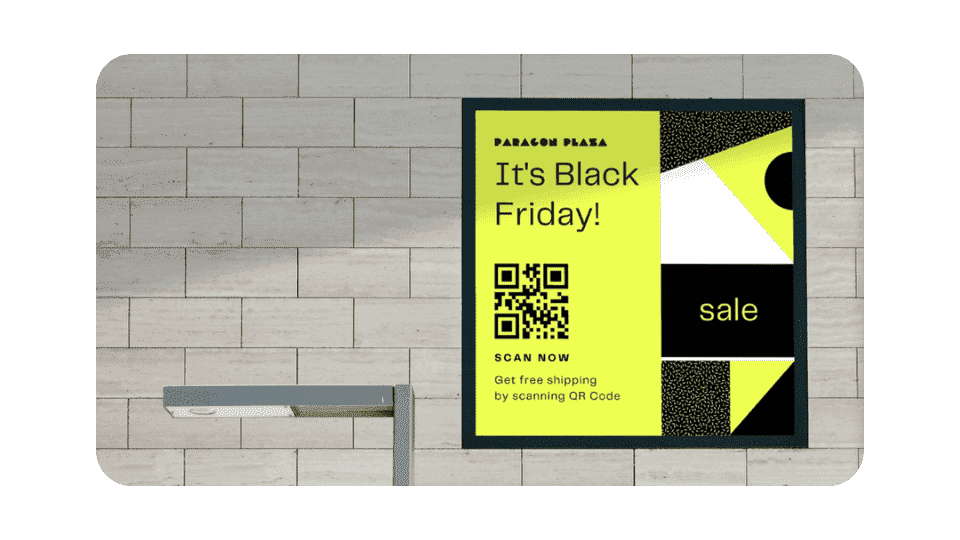
Brands can use QR Codes on labels and stickers to bridge the gap between physical and online advertisements. Website QR Code labels on small-sized print media such as flyers, posters, signages, and brochures help drive website traffic. Businesses can leverage app QR Codes on labels to promote their app and increase app downloads. Audio QR Codes on labels come in handy to promote informative podcasts about the business and its products.
Secure and faster payments with QR Code labels
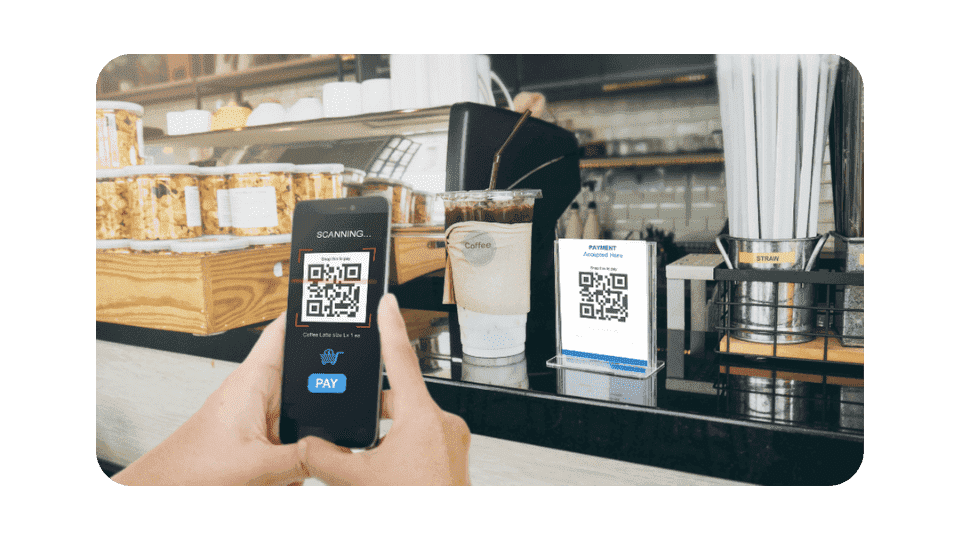
The pandemic has fueled the need for contactless solutions while shopping in-store. QR Code labels at checkout counters for payments are a major solution that minimizes contact and results in faster, safer, and more secure payments at the time of purchase. For consumers, it’s an administered self-service that helps them conduct quick payments while shopping on the go.
How to drive more sales and increase loyalty with QR Codes on labels and stickers
Get customers to join loyalty programs, re-order products, and drive more sales with QR Codes on labels and stickers.
Make product packaging your point of sales
Re-order products online using custom QR Code stickers
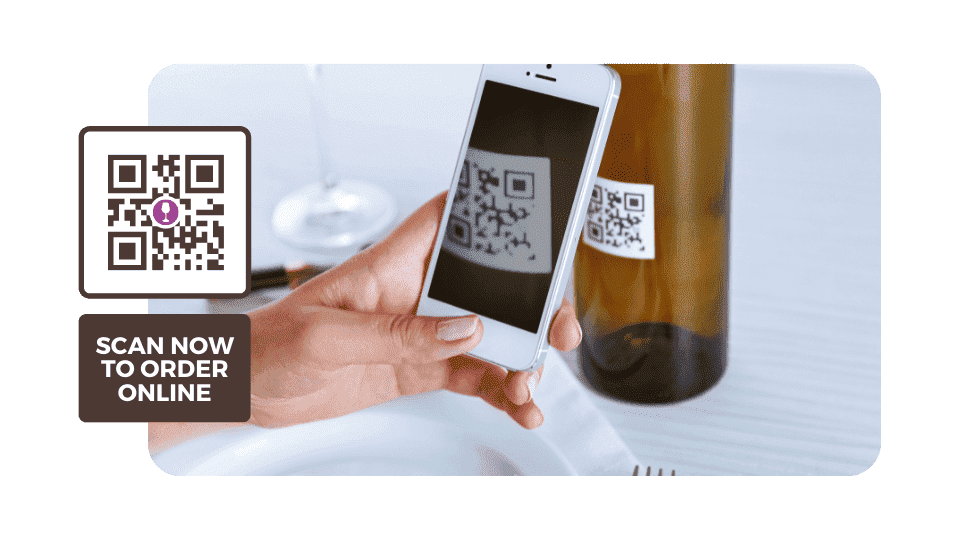
Businesses can use dynamic QR Code stickers to allow consumers to re-order products from their online stores. This works well for products that are bought frequently, like groceries, toiletries, online stores, and subscription-based boxes. These custom QR Code stickers on products make it convenient for consumers to purchase their basic necessities online and drives the number of repeat purchases.
Drive loyalty using QR Code labels on products, flyers, brochures, and posters
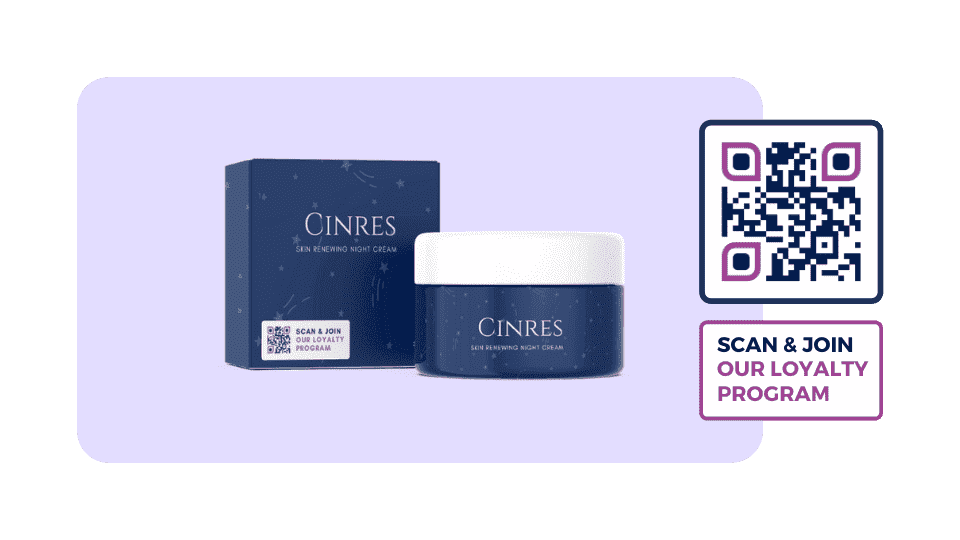
In-store posters or flyers with QR Code labels can be used to get users to sign up for loyalty programs quickly and without holding the line at checkout. QR Code labels can also be embedded on product packaging so that consumers can sign up anytime at their convenience. All consumers would need to do is scan, sign up, and they’ll receive rewards with every purchase seamlessly. This mobile-first approach appeals to consumers and increases long-term brand loyalty.
Manage inventory with the help of bulk QR Code labels
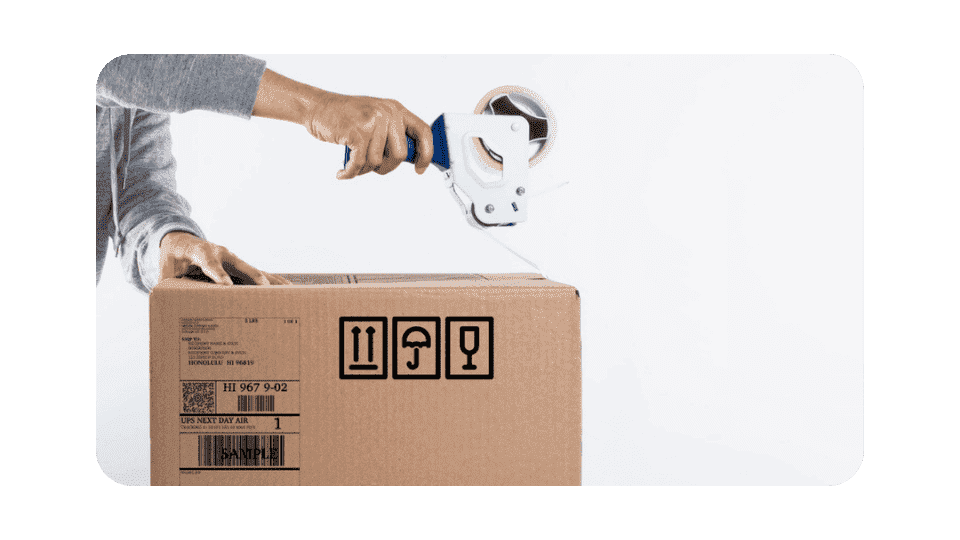
Inventories contain products in large quantities and can be a hassle to manage all at once. Using QR Code labels in bulk, businesses can track every item in their shipment, ensure that transportation runs smoothly, and automate the inventory management process easily.
Check out QR Codes for Inventory Management
How to create QR Codes for labels and stickers
There are a lot of complicated processes available online that either ask you to create a QR Code in Microsoft Word or use complex software to generate QR Codes in bulk and then assign them with a number.
Skip all of that with an easy and effective QR Code solution - Uniqode.
Creating a QR Code on the dashboard takes less than 5 minutes, and you can make all kinds of QR Codes - PDF, Video, Google Maps, Website, Image Gallery, vCards, and more.
You can create beautiful and customized landing pages called DIY landing pages without any coding whatsoever.
Here’s how you can create QR Code labels and QR Code stickers:
- Step 1: Go to Uniqode’s QR Code generator.
- Step 2: Select a campaign type from the ones available.
- Step 3: Customize your QR Code - add a logo, change the color scheme, and add an actionable frame text.
- Step 4: Test your QR Code for scannability.
- Step 5: Download your QR Code in any of the five available formats - PNG, JPG, SVG, PDF, and EPS.
You can even skip printing the QR Codes on stickers altogether. Uniqode offers two technologies rolled into one product - an NFC and QR Code sticker . This NFC sticker has a QR Code embedded on top allowing all smartphones - Android and iPhones to access your marketing campaigns.
Bulk QR Code labels: Scale up and eliminate manual QR generation
For businesses looking to expand and upscale their marketing campaigns or manage inventory easily, Uniqode’s bulk QR Code generator is a scalable fit. Create and download multiple QR Code labels and stickers in the image format of your choice, save ample time, and cut down on manual QR Code generation efforts significantly.
Here’s how you can create QR Code stickers and QR Code labels in bulk:
- Step 1: Sign in to the Uniqode dashboard and select Bulk QR Codes from the left panel.
- Step 2: Choose a campaign type.
- Step 3: Upload a CSV file that contains all the required fields for your batch QR Codes.
- Step 4: Customize your bulk QR Code collection.
- Step 5: Download the zipped file.
Dynamic QR Code labels: Print it and forget it
Uniqode’s QR Code solution allows you to modify your QR Code campaigns without needing you to reprint them. All changes made reflect instantly in your campaigns. These dynamic QR Codes evolve with you. You can also monitor your QR Code campaigns, assess their performance, and make the necessary changes in real-time.
QR Codes on labels and stickers: Best Practices
Pick the right QR Code label size & format
Your QR Code labels and stickers should be the right size to ensure 100% success rates for scannability. If they’re too small in size, smartphone cameras and QR scanner apps will render them unreadable.
Your QR Code label should be at least 2 cm x 2 cm in size to be readable. You can even use the formula: QR Code Size = Scanning Distance/10, where the scanning distance is the distance between the product and your smartphone.
Pick the right QR Code format to avoid issues with image resolution. QR Code images in the PNG format are recommended since it’s best suited for small-sized print media.
Learn more about QR Code printing guidelines
Provide scanning instructions for your QR Code stickers
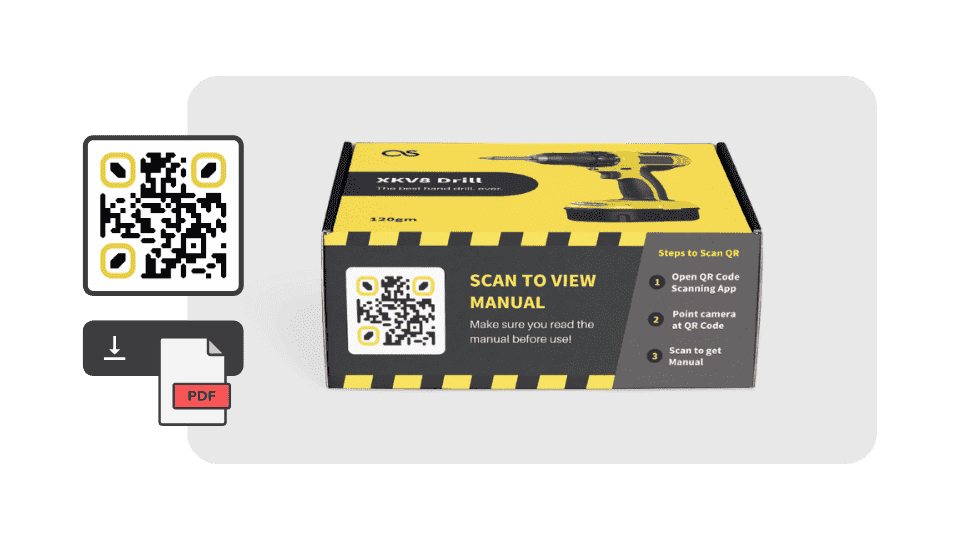
Not all consumers are aware of how QR Codes work. To help them out, provide scanning instructions next to your QR Code sticker. Make sure your instructions cater to both Android and iOS users. For those consumers having smartphones with no in-built QR support, provide information on how they can scan the QR Code sticker without an app.
How to scan QR Codes with Android phones without an app
Add a brand logo to QR Code labels to reinforce brand recall
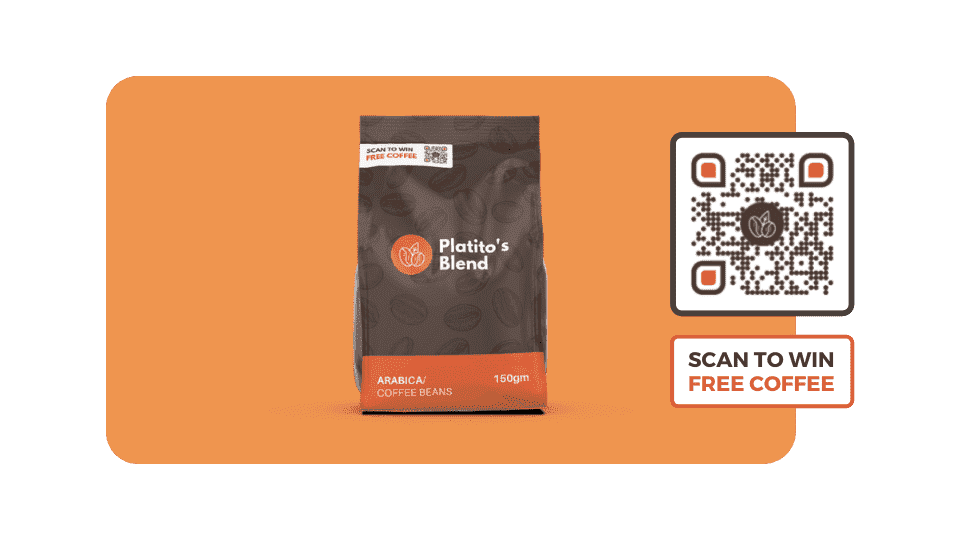
Be consistent with brand representation by adding your brand’s logo to your QR Code labels. Take it up a notch by modifying your QR Code’s color scheme to match your brand’s tone. Increase brand recognition 10-fold and make an impression among consumers with these custom QR Code stickers.
Increase scan-through rates with actionable CTA frame
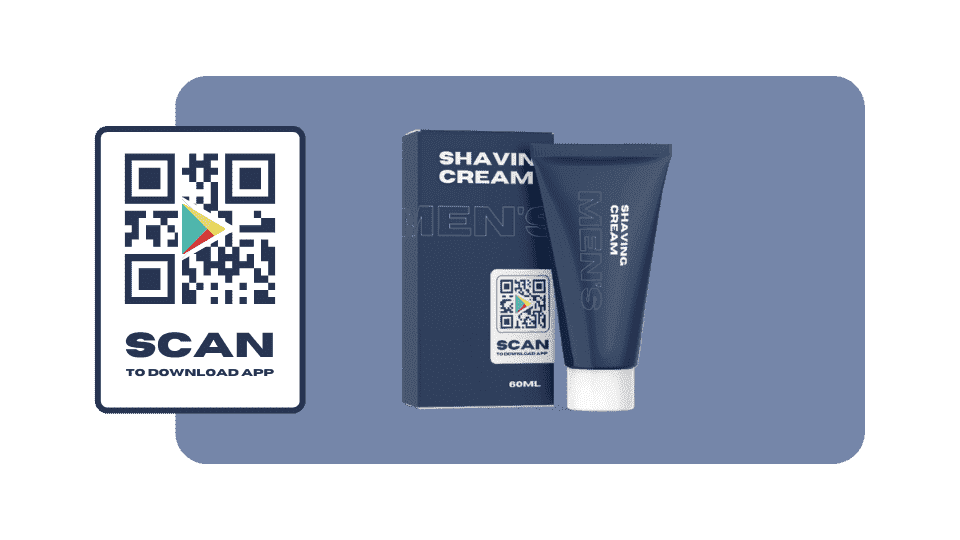
Add a call-to-action frame text to your QR Code tag to nudge consumers towards scanning it. Provide incentives such as a 10% discount off their next purchase to prompt immediate scanning. Incorporate actionable CTA frames into your QR Code tags to attain higher scan-through rates for your QR Code campaigns.
Know where to place your QR Code label or sticker
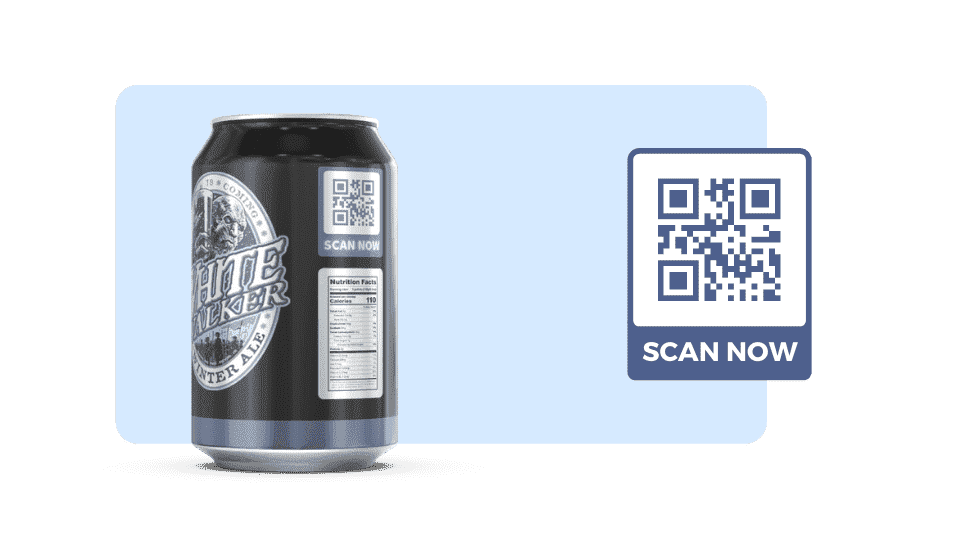
Where you place your QR Code label is vital for consumer interactions and influencing purchase decisions. If your product is mature, place the QR Code label at the back of the product to understand consumer behavior better. If your product is newly launched, place the QR Code label at the front of your product to gauge consumers for maximum feedback.
Pick a suitable error correction level for your QR Code sticker
Sometimes, advanced customizations to your QR Code stickers or natural wear and tear can impact its scannability. To fix this, create QR Codes with error correction so that they’re scannable even with a certain degree of damage. A suitable error correction level is M, which means that even if 15% of your QR Code sticker is damaged, it will still be scannable.
FAQs - Creating and printing QR Code labels
A QR Code label is one that is usually attached to a product that allows users to track the product, learn more about its origin, ingredients, view promo codes, discounts, and even re-order it by scanning the QR Code.
Open your smartphone’s camera and point it at the QR Code label for a couple of seconds. Open the associated link to perform the intended action.Discover how to scan QR Codes on Android, iOS, desktop, and tablet
QR Codes should be at least 2 cm x 2 cm in size to ensure that they are scannable. You can test your QR Code before printing it to ensure that yourcustomized QR Code is still scannable.
Download your QR Code sticker in the preferred format and print it as you would normally print any other image. The available image formats are PNG, JPG, SVG, PDF, and EPS.

Explore other QR Code use cases
